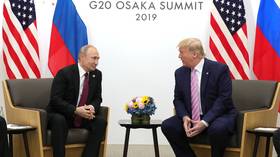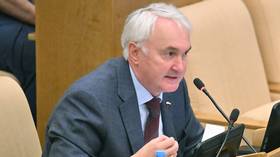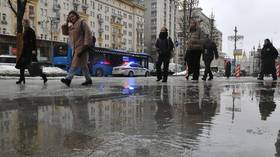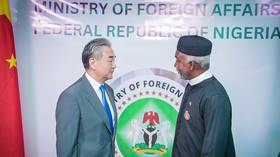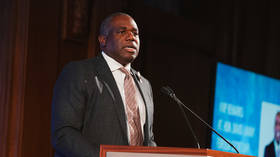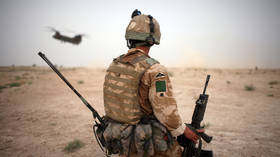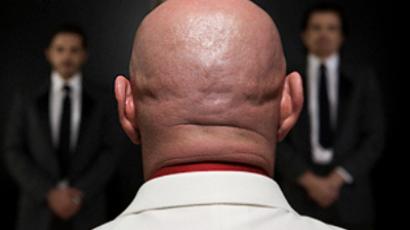ROAR: “Cool reception” for Miliband in Moscow

David Miliband’s visit to Russia was more important for him personally than for improving bilateral relations, observers believe.
As a lot of factors hinder a rapprochement between Russia and Britain, the first visit of the British foreign secretary in the last five years has not brought solutions to the key issues.
In particular, London is demanding that State Duma deputy Andrey Lugovoy be extradited to Britain as a suspect in the Aleksandr Litvinenko poisoning case, while Moscow wants the extradition of exiled oligarch Boris Berezovsky and the emissary of a group calling themselves the “Government of Independent Chechnya”, Akhmed Zakaev.On the eve of Miliband’s visit, observers spoke a lot about “the beginning of ‘the reset’ in Russian-British relations by analogy with the US,” RBC daily said. However, Russian Foreign Minister Sergey Lavrov called Britain’s demands “absolutely unrealistic”, because Moscow will not change the constitution to extradite its citizen.
In the absence of breakthroughs in bilateral relations, Miliband and Russian Foreign Minister Sergey Lavrov “concentrated on international relations,” RBC daily said. “Several statements were adopted about general principles of the nuclear non-proliferation, the Iran nuclear program, the Afghan problems and the Middle East settlement,” the paper said, adding that “there was nothing new in these documents.”
On the other hand, Miliband did not follow the advice of British parliamentarians who had asked him to raise the issue of human rights during the visit. At his meeting with representatives of Russia’s civil society he restrained from any criticism, Vedomosti daily said. Human rights activists did not hear a clear message from Miliband that this issue will be “one of priorities for Britain” in relations with Russia, the paper added.
Despite the possible intentions of the British side to keep pace with the US in resetting relations with Russia, Miliband made statements that London is not changing its positions in several issues, Kommersant daily said. They include the 2008 war in the Caucasus, Russia’s recognition of South Ossetia and Abkhazia and the Litvinenko case.
After all these statements, Miliband had “a cool reception” in Moscow, the paper said. “Neither [Prime Minister] Vladimir Putin, nor [President] Dmitry Medvedev wished to receive him,” the daily said. “It seems that the Russian authorities do not consider London as a trustworthy partner so far,” the paper added.
The first visit of the British foreign secretary has drawn special attention because it sums up the results of the period of the worst relations between Moscow and London since the Cold War, believes Fedor Lukyanov, editor-in-chief of Russia in Global Affairs magazine.
“The murder of Aleksandr Litvinenko in autumn 2006 and the following events – problems with the British Council, unsuccessful attempts of the Russia’s Prosecutor General’s Office to secure the extradition of Russian fugitives, an agonizing conflict of the TNK-BP shareholders which did not go without the interference of the governments – these are the biggest frictions that have been amassing recently,” Lukyanov wrote in Gazeta daily.
Russia’s relations with Britain have never been as easy as those of some Russian citizens, the analyst stressed. “It happened that it was David Miliband who symbolized the degradation of bilateral ties,” Lukyanov said.
“His not very politically correct statement in 2007 that Russia should change its constitution to extradite a suspect in a murder aggravated the situation in many respects, because Moscow has taken this as an infringement of Russia’s sovereignty,” the analyst added.
The very fact of Miliband’s visit shows the desire to turn the darkest page of the relations, Lukyanov said. However the lack of hopes for good results is related not only to the absence of positive agenda “because no side proposes it, but also to the peculiarities of the British situation,” he added.
Miliband represents a government that “will leave the political arena no later than in the early summer next year,” Lukyanov said. “The foreign policy priorities of the next prime minister, David Cameron, are unclear.”
Konstantin Kosachev, head of the State Duma Committee on Foreign Affairs believes that any problem in bilateral relations between Moscow and London can be overcome, and the ties have “huge potential.”
“Britain is lagging behind other European countries and the US in developing relations with Russia,” he told Nezavisimaya Gazeta daily. He added that “it was a choice of the British side.”
“I’m afraid that the present British leadership has considerably limited its maneuver by previous radical statements toward Russia,” Kosachev said.
It will be difficult for the present government in London “to modernize this policy,” he added. Whoever wins the parliamentary elections in Britain next year, a new good chance will appear, he added.
Chairman of the Federation Council’s committee on foreign relations Mikhail Margelov thinks that the question about the extradition of Lugovoy will be discussed at all further talks between Moscow and London.
But the visit of the foreign secretary after a five-year break shows that “London has an understanding of the [need for] resumption of normal ties with Moscow,” Margelov told Rossiyskaya Gazeta daily. The further delay of this process is not in the interests of Britain itself, he said. “Its policy toward Russia has not in the least received support from other influential members of the European Union, and now from the US,” he added.
Despite the disagreements, the visit to Moscow was very important personally for Miliband, Russian analysts say. After the ratification of the Lisbon treaty, a new position will be created in Brussels – the European Union’s foreign minister. Miliband, although he has not confirmed this possibility, is considered one of the main favorites.
Aleksey Gromyko, deputy director of the Institute of Europe of the Russian Academy of Sciences, told RBC daily that it was important for Miliband “to show that, despite the fact that relations between Russia and Britain are not the best, Moscow is ready to conduct dialogue with him.”
As for Russian-British relations, Moscow will have to build dialog with a different government, many observers say, adding that London may remain for a long time “a special case in Russia’s foreign policy.”
Gazeta.ru website in its editorial described the paradox of Britain in the system of Russia’s relations with the West. Of all Western countries, Russia has the worst relations with Britain, the country that “has actually become the second home for both disgraced and current Russian elite,” the website said.
“It is Britain where representatives of the Russian elite, including political ones, buy real estate and where they teach their children,” Gazeta.ru said. Other representatives of the same financial and political elite escape to Britain to avoid prosecution, the website added.
In the US, there is a strict approach to the origin of capital, and “many Russian oligarchs and some high-ranking official cannot enter that country,” the website said. “Britain rather than the US, is in fact, the main Western power, the relations with which illustrate contradictory feelings of Russia’s elite to the West as a whole,” it added.
Sergey Borisov, RT


